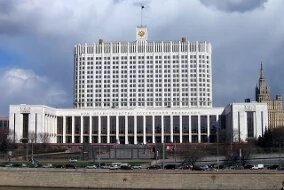
- Does gender censorship exist in Russia?
It exists, but only as a hidden phenomenon, on the level of subconscious traditional attitudes on the part of people who work in the media, both at the top management levels and among ordinary journalists. One can say that there are large obstacles to women’s access to the media when it comes to expressing their opinions and articulating their social interests. Even women journalists, in most cases, “don’t speak with their own voices”, instead reproducing the stereotype of the “weaker sex” that is engrossed with concerns of maintaining a happy marriage and going shopping. In that context, of course, articles or reports concerning discrimination against women in politics or on the labor market in Russia are not needed. In those rare cases, when a professionally successful woman gives an interview, she may – in order to please public opinion – emphasize that she is by no means a feminist and that she has been just lucky in happening to have succeeded in her career, and, of course, she does iron her husband’s shirts and bake cakes for the children.
- Why do socially-active, successful women publically dissociate themselves from feminism?
Because, a highly distasteful image of feminism has been created in Russia. The cultivation of that image was particularly active in the late 1980s and early 90s. With the onset of perestroika, histrionic criticism began to appear in the media, directed not against the society that discriminated against women, but against the women themselves, who were accused of having forgotten their “natural vocation” and of similar sins. At the same time, an image of feminism was shaped as a movement that was belligerently directed against men, created by women who were not pretty, were unsuccessful in their private lives and were in all likelihood lesbians ... The caricature image of bow-legged bluestocking. And women don’t want to be associated with that image.
- Why is this caricature image of feminism so persistent?
Because at the same time that freedom was emerging, what we call gender censorship also emerged. Already during perestroika, freedom of expression meant freedom of expression for journalists only, not for the society. Thus, we can speak of a violation of the freedom of expression of women as a gender group when it comes to promoting their social interests (Parenthetically, I would like to add that with regard to promoting their social interests there are also other groups, social and ethnic, that have been deprived of their freedom of expression). And though unbiased reasoning can be found in the media with respect to politics, economics and history, the discussion on issues of women’s rights and gender equality, and on human rights issues in general, is closed.
- Can one say that the gender discourse in the media ended with the curtailment of the public discussion of human rights issues?
I would say that the problem did not lie only in that. Practically all Russian human-rights defenders think that sex-based discrimination against women is somewhat far-fetched. They simply ignore the complicated, but by no means irresolvable problem represented by the combination of general and specifically women’s rights, which is described in the UN documents. Gender discrimination is a systemic sociological phenomenon, and it can only be overcome by society as a whole.
----
Olga Voronina. Doctor of Philosophy, Director of the Moscow Center for Gender Studies (MCGS)
Natalia Bitten Journalist, political
scientist, writer, feminist. Has published academic essays and the
novel 'Mainstream' (2007) under the pseudonym of Natalja Kim.
She specializes in Gender Studies. Edited the largest
political paper in the area of Kemerow. Currently she works on the
internet portal Klub (traveling women). She is an active member of
'Initiativegruppe Für Feminismus'.
----
Read more about:
- The stiuation of women in Russia - An introduction
- Activists from the initiative group For Feminism
- Interview with Galina Mikhaleva: About March 8th and democratization processes in society
- Interview with Nadezhda Shvedova: The women's movement in today's Russia
- Interview with Irina Tartakovskaya: Equality and quotas in Russia
- Interview with Olga Zdravomyslova: patriarchal renaissance in Russia
- Interview with Soja Khotkina: Women in russia on the labor market
- Interview with Yelena Maksimova: "March 8th in Russia: From Marxism to Sexism"
- Interview with Nina Ostanina: Only socialism will guarantee true equality for women
- back to overview Women´s Voices Women´s Choices